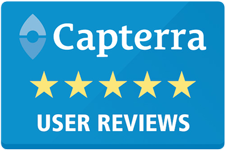Choosing the right software for your fitness business

Whether you’re running a boutique studio, a martial arts school, or a multi-location health club, the right software can streamline operations, boost member engagement, and help your business grow. But with so many options out there, how do you choose fitness business software that fits your unique needs?
This guide breaks it down step by step.
Why the right software matters
From scheduling and billing to marketing and member retention, your fitness business runs on more than dumbbells and dedication—it runs on systems. Choosing the right software means:
- Less time on admin tasks
- More visibility into performance
- Happier staff and members
- Room to scale without chaos
Let’s explore how to find the perfect fit.
Step 1: Identify your business needs
Before shopping for tools, get clear on what your fitness business actually needs.
Are you a single-location or multi-location business?
Larger operations may require more robust features—like multi-location reporting, centralized billing, or customizable permissions—than smaller, boutique setups.
What are your core challenges right now?
- Are no-shows eating up revenue?
- Is your staff juggling paper waivers and spreadsheets?
- Do you need a better member communication tool?
Make a list of your daily pain points. The right software should directly solve them.
Step 2: Look for must-have features
Every fitness business is different, but some core features should be non-negotiable.
Scheduling and class management
Look for flexible scheduling tools that support drop-ins, recurring classes, waitlists, and capacity management.
Billing and payment processing
Automated invoicing, membership renewals, and integrated payment gateways help you get paid on time.
CRM and member management
Track member data, attendance, goals, and communications—all in one place.
Reporting and analytics
Data should drive decisions. Choose software with real-time dashboards and customizable reports.
Mobile app access
Both staff and members benefit from mobile access for check-ins, class bookings, and notifications.
Step 3: Consider the user experience
Even the most powerful software is useless if it’s hard to use. Prioritize:
- Intuitive interfaces for staff
- Simple member onboarding
- Clean dashboards for reporting
- Reliable support and documentation
Pro tip: Ask for a live demo and test the product with real tasks from your workflow.
Step 4: Check for integration capabilities
Does the software play well with others? Look for integrations with:
- Marketing platforms like Mailchimp
- Payment processors like Stripe or Square
- Access control systems
- Accounting tools like QuickBooks
This ensures your data flows smoothly between systems.
Step 5: Review pricing and roi
The cheapest option isn’t always the most cost-effective. Compare:
- Monthly subscription tiers
- Included vs. add-on features
- Setup and training costs
- Scalability as your business grows
Then ask: Will this software save time, reduce churn, or grow revenue? That’s your real return on investment.
Step 6: Read reviews and ask for references
Nothing beats hearing from real users. Look for:
- Online reviews (G2, Capterra, Trustpilot)
- Case studies from businesses like yours
- References provided by the software company
Their wins—and pain points—will help you decide.
Step 7: Request a trial or demo
Most top-tier software providers offer a free trial or personalized demo. Use this time to:
- Set up your own classes, members, and workflows
- Invite staff to try it
- Ask support questions
- Evaluate performance under real conditions
Final thoughts: don’t just pick—plan
Choosing fitness business software isn’t just about picking features. It’s about choosing a long-term partner for your business growth.
Take the time to plan, involve your team, and test your options. The right decision will save you time, boost retention, and give you the confidence to scale.
Related – Is Your Fitness Club Reaching its Full Potential?
Request a Demo and see how our fitness management software helps you streamline operations, boost engagement, and grow revenue—without the stress.







